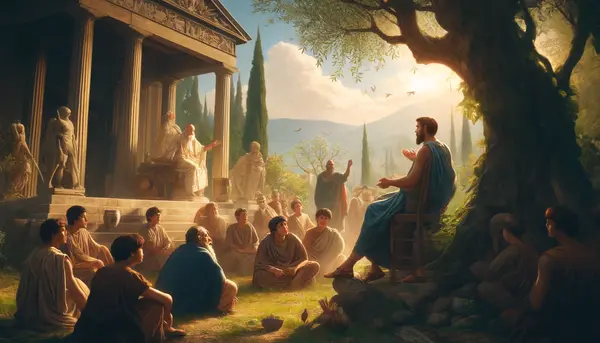Summary and key points from the writings of the ancient Stoics (Letters from a Stoic, Meditations, Discourses of Epictetus, and many more)

Letter from a Stoic 55 Summary and Key TakeAways
In Seneca letter 55, "On Vatia’s Villa," presents Seneca’s reflections on a visit to the country house once owned by Servilius Vatia, intertwined with philosophical musings on the nature of leisure and the essence of a life well-lived. Through descriptions of Vatia’s luxurious villa and the serene landscapes that surround it, Seneca explores deeper themes of tranquility, seclusion, and the distinction between true leisure and mere idleness. …

Seneca Asthma
In Seneca letter 54, "On Asthma and Death," Seneca delves into the Stoic philosophy regarding the acceptance of death and the impermanence of life, sharing his personal experiences with asthma—a condition he likens to a rehearsal for death. His reflections provide a rich tapestry of thought on how to live with awareness of mortality and find peace in the inevitability of death. Through his contemplation, Seneca articulates profound insights on facing the end of life…

Letters from a Stoic 53 Key TakeAways
In letters from a stoic 53, Seneca narrated a story when he was traveling to a place called Parthenope in unfavorable weather. He couldn’t handle the seasickness brought about by the waves of the sea so he had to ask the pilot to go to the nearest shoreline. He then proceeded by saying the disease of the soul is worse than the disease of the body. This is…

Letters from a Stoic 52 KeyTakeAways
In letters from a stoic 52, Seneca discusses two types of men who are in their path to becoming the best version of themselves - one who needs help from mentors and one who can do it by himself. He said that men who can do the latter are “first class” while the former “second grade”. I think almost everyone belongs to the second grade because even Seneca…

Letters from a Stoic 51 Key TakeAways
In letters from a stoic 51, Seneca talks about the importance of living in a place that’s far from vices but one that should enhance our character instead. “We ought to select abodes which are wholesome not only for the body but also for the character... We ought to see to it that we flee to the greatest possible distance from provocations to vice.” He mentioned several…




